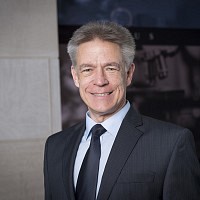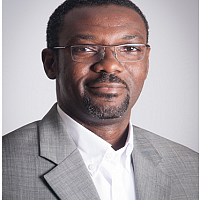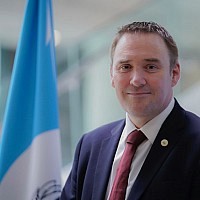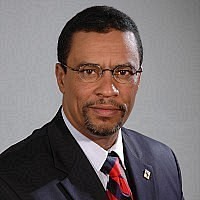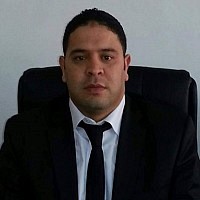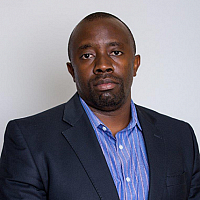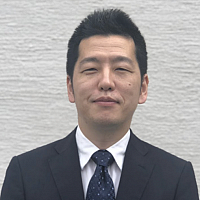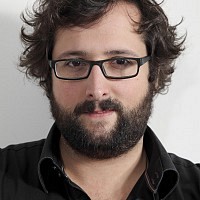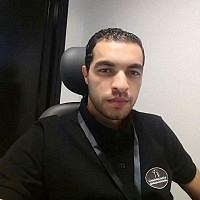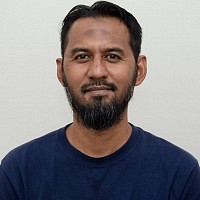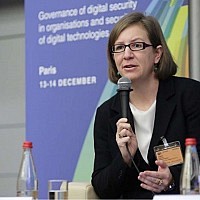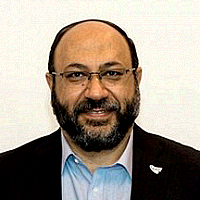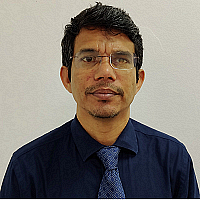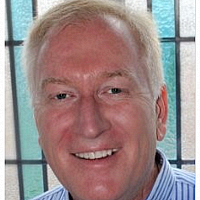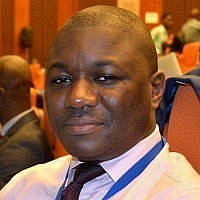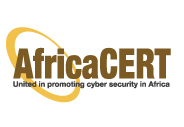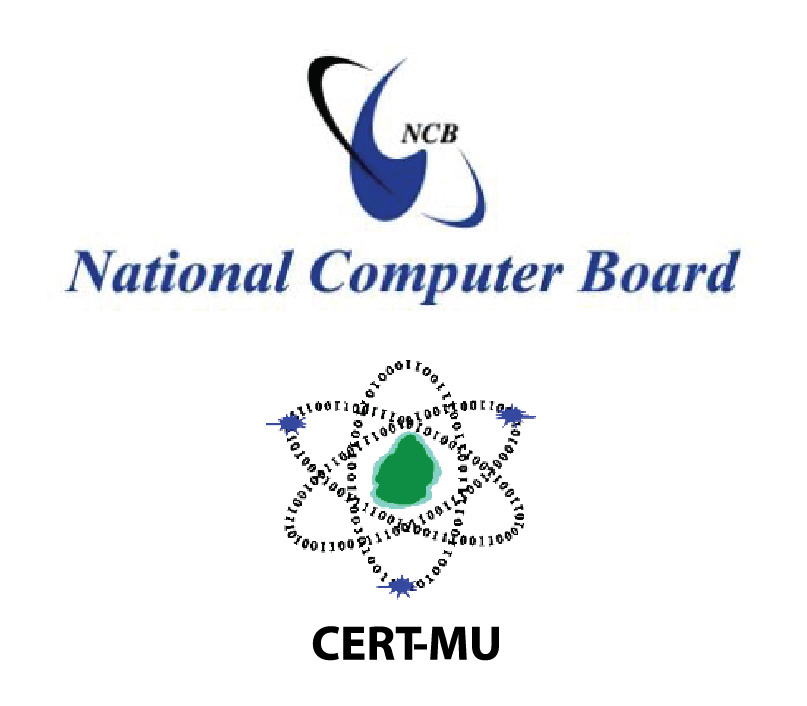Adiel A. Akplogan is Vice-President for Technical engagement at ICANN. With more than 25 years experience in the Internet industry, Adiel has previously worked as CEO of AFRINIC (The African Network Information Centre – 2004-2015), IT Director for Symbol Technology/Motorola in France (2001-2003) and Director of New Technology at CAFÉ Informatique in Togo (1994-2000). Recognized as one of the Internet Technology pioneers in Africa, he has contributed to technical capacity building and actual deployment of some of the first private ISPs in West Africa from 1996-2000.
During his career, Adiel has served on Boards and Advisory Committees of several global & international organizations such as the UN Internet Governance Forum Multistakeholder Advisory Group (IGF-MAG from 2006-2009), the Technical Advisory Committee of the United Nation Economic Commission for Africa (ATAC/UNECA from 2005-2006), the Executive Council of the Number Resource Organization (NRO – 2005-2015 as Chair, Secretary and Treasurer), the ICANN's Strategic Panel on its role in the Internet Governance ecosystem, the Africa Union's AXIS program Steering Committee (2012-2015), the Africa Network Operators Group and the Africa Internet Summit's Administration and Program committee (AFNOG/AIS – 2000-2015) and the OIF (Organisation International de la Francophonie) Expert Group on Internet Governance (since 1999).
With a strong passion for the Internet technology and its impact on human development, he has also actively contributed to the setup of several technical coordination bodies in Africa such as the African Network Operators Group (AfNOG), The Africa Network Information Centre (AFRINIC) which he has lead for the past 10 years, the African ccTLD Managers Association (AfTLD), AfricaCERT, Africa Internet Summit (AIS), etc. Public speaker, he has written and contributed to several papers and articles on the Internet infrastructure and its governance.
Adiel Akplogan is an Electrical Engineer and holds a Masters in E-Business and New Technology Management from Paris Graduate School of Management. He leaves and works from Montreal (Canada). He was Inducted by Internet Society (ISOC) in the 2019 class of Internet Hall of Fame.
Carlos’s work is currently focused on helping the Internet community address abuse of Domain Name System resources, by: -- Providing subject matter expertise on contractual and policy matters with potential anti-abuse and consumer protection implications. -- Trust-based collaboration with worldwide cyber law enforcement and the operational security community. -- Capability building, via training law enforcement and other constituents involved in the operation or the security of the Internet identifiers. He served in the past in ICANN's Contractual Compliance Team where he managed the team responsible for processing all registrar-related complaints worldwide. He also provided key subject matter expert advice and guidance to ICANN's Contractual Compliance Audit Program and to the gTLD registry-related work of the Compliance Team. Prior to joining ICANN, Carlos participated in the International Attorneys Program at Holland & Knight in Miami and served as the head of the Legal & Business Affairs Division at Sony Music for Colombia, Ecuador, Venezuela and Peru. While in this position he was a member of the Andean legal committee of the IFPI (International Federation of the Phonographic Industry). He was a pioneer in Latin America in matters related to software anti-piracy, information security from a legal perspective and cyber crime, initially through his work with the local law firm of the Business Software Alliance in Colombia since 1998. His articles on piracy and terrorism, cyber crime, botnets, digital evidence, criminal aspects related to the use of honeypots, legal aspects of information security standards, the Budapest Convention, and other related matters have been published in Colombia, Venezuela, Argentina, Mexico and Spain. He taught computer law, legal aspects of information security and intellectual property in two universities in Bogota and has lectured before many different audiences in the Americas, Europe and Asia, from students to c-level executives, as well as government representatives, regulators, law enforcement, and military and intelligence personnel. He maintains working relationships with law enforcement cyber units from different countries and while still living in Bogota was a member of the local Electronic Commerce Subcommittee of the International Chamber of Commerce. Carlos is a former co-chair of the Messaging, Malware and Mobile Anti Abuse Working Group (M3AAWG)'s Anti-Phishing Special Interest Group and is a co-chair of M3AAWG's DNS Abuse Special Interest Group. Carlos is an attorney graduated from the Universidad de los Andes in Bogota. He holds a Master of Laws degree from the University of Southern California Gould School of Law, and has studies on networking with TCP/IP from UCLA.
Craig Jones, INTERPOL Cybercrime Director Originally from New Zealand, Craig Jones leads INTERPOL’s Global Cybercrime Programme. The objectives of this Programme are to reduce the global impact of cybercrime and protect communities for a safer world. Under this mandate, he focuses on operational delivery, cyber threat response and capabilities development in support of 194 INTERPOL member countries. With over 27 years of law enforcement experience, he is an expert in the area of cyber/digital crime investigations and capabilities development. Previously, he held several senior management positions in the UK law enforcement, most recently at the National Crime Agency in the UK. In this capacity, he coordinated UK’s law enforcement response to the National Cyber Security Programme, which underpinned the UK’s National Cyber Security Strategy. He has successfully delivered multi-million Euro projects, designed to increase cyber capabilities and capacity at regional, national and international levels. He also worked on the international capacity framework project, representing the UK and now INTERPOL, at the Global Forum for Cyber Expertise working groups and forums. He is recognized as a strategic leader, and identifies and assists in shaping policies that deliver outcomes and results against international and national cyber strategies. He also anticipates and predicts the long-term impact of national and international developments including economic, political, environmental, social and technological aspects specific to the cyber threat.
Folake Olagunju is the Program Officer Internet and Cybersecurity at the Economic Community of West African States (ECOWAS) Commission. She is currently working on implementing the cybersecurity agenda to facilitate initiatives that will assist the ECOWAS region protect their cyberspace, critical information infrastructure and build confidence in the use of ICTs. Prior to her current role, she worked on various IT related activities including policy and infrastructure initiatives in West Africa. Folake is also co-Chair of the GFCE Advisory Board.
Cybersecurity and cybercrime issues are becoming a day-to-day struggle for the whole world including Africa. Recent trends and cybersecurity statistics reveal a huge increase in in the number of incidents of different kind. Cybercrime is on the rise. Additionally, recent security research suggests that most organizations have a poor cybersecurity practices in place, making them vulnerable to data loss. To successfully fight against malicious intent, it’s imperative that companies make cybersecurity awareness, prevention and security best practices a part of their culture. This session is focused to give you a better idea of the current state of overall security and the global trends.
The discussion will help to paint a picture of how potentially dire leaving the organization insecure can be as well as show the prevalence and need for cybersecurity.
Carlos and Adiel will provide a brief update on ICANN‘s activities in the areas of Security, Stability and Resiliency, and engagement with the public safety and cyber security communities worldwide, including obviously FIRST.



